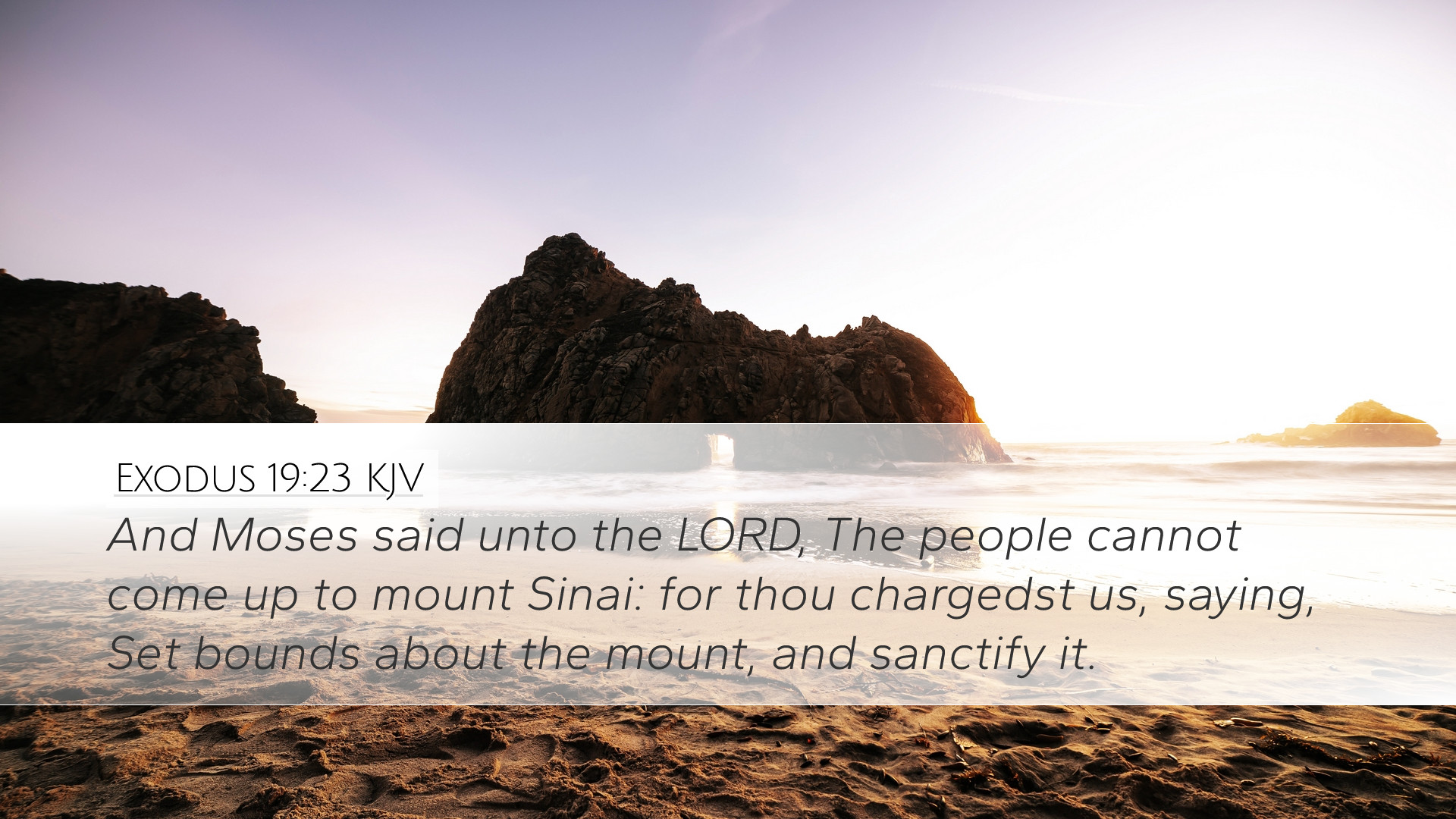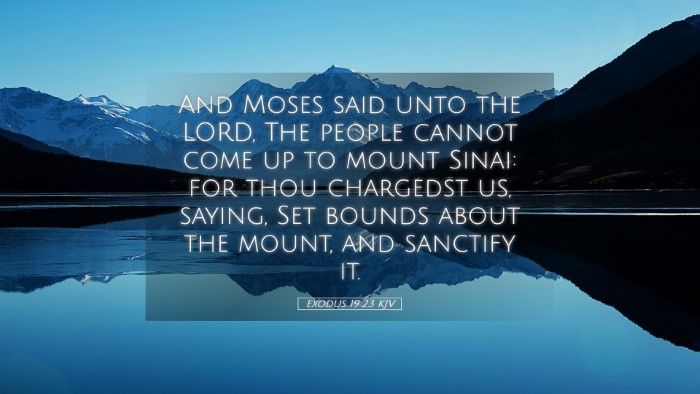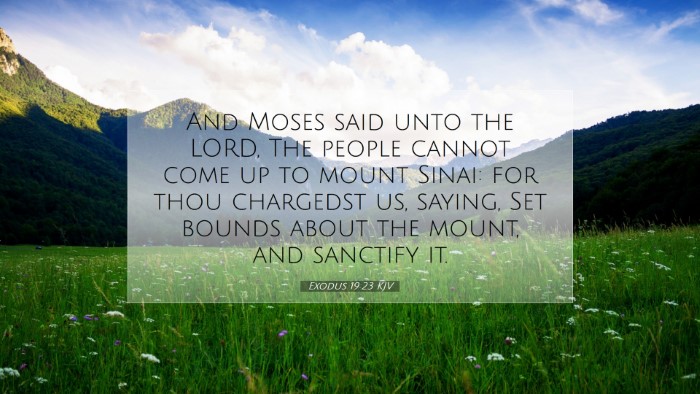Commentary on Exodus 19:23
Text of Exodus 19:23 (ESV): "Moses said to the Lord, 'The people cannot come up to Mount Sinai, for you yourself warned us, saying, "Set limits around the mountain and consecrate it."'
Introduction
This passage occurs in the larger context of God preparing the Israelites for the giving of the Law at Mount Sinai. Exodus 19 illustrates the awe and holiness of God and the ordered relationship between Him and His people. Commentaries by Matthew Henry, Albert Barnes, and Adam Clarke provide profound insights into the significance of this verse and its implications for understanding God’s nature, holiness, and the covenant relationship with Israel.
Context and Overview
The preceding chapters detail God’s deliverance of Israel from Egypt and His promise to make them His treasured possession. Exodus 19 specifically illustrates the physical and spiritual preparation required to encounter God. The warning given by God about setting limits around the mountain underscores His holiness and the seriousness of approaching Him.
Exegetical Insights
- The Mountain as Holy Ground:
God commands that the mountain be consecrated, signifying that Mount Sinai is not just a geographical location but a sacred space appointed by God for a unique encounter. This feature is emphasized by Clarke, who notes that Israel’s approach to God must be marked by reverence.
- The Warning Against Presumption:
Henry highlights that God’s warning illustrates His expectations regarding boundaries when approaching Him. Presumption in approaching God often leads to dire consequences, as seen in later parts of the narrative.
- The Role of Moses:
Moses’ role as mediator is critical; he intercedes and guides the people in understanding their limitations. Barnes suggests that Moses' acknowledgment of the prohibition demonstrates his alignment with God’s will and the seriousness with which he regards God’s instructions.
Theological Reflections
- Holiness of God:
The concept of holiness in this context is vital. God’s nature, being utterly holy, necessitates a distance between Him and sinful humanity. This theme is prevalent in the writings of all three commentators; God's holiness sets the tone for how His people should approach Him.
- Covenant and Obedience:
The relationship between God and Israel is covenantal. Their obedience to the instructions given concerning the mountain is a prelude to receiving the Law. The implication is that to partake in God’s promises requires both reverence and compliance with His Word.
- Christological Implications:
Clarke posits that the limitations set up around Sinai find their fulfillment in Christ, the mediator of a new covenant, who bridges the gap created by God’s holiness and humanity's sinfulness. Thus, understanding this verse conjugates Old and New Testament theology.
Pastoral Applications
This verse calls pastors and teachers to emphasize the awe of God when preaching and teaching. Here are several applications:
- Teaching the Fear of the Lord:
Emphasizing the importance of reverence for God’s holiness is crucial. This awareness drives home the point that we are invited into God’s presence but must understand the gravity of His majesty.
- Encouragement in Mediation:
Moses' role as a mediator serves as a strong reminder of Christ's mediation. Pastors should inspire congregations to approach God with confidence through Christ, who has removed barriers.
- Call to Holiness:
Congregants should be encouraged to live set apart, mirroring the consecration of the mountain. There should be a practical emphasis on holiness and how to maintain spiritual boundaries in a morally complex world.
Conclusion
Exodus 19:23 encapsulates profound theological truths about God’s holiness, the necessity of obedience, and the beauty of mediation. Through an understanding provided by revered commentators such as Henry, Barnes, and Clarke, we find rich insights that remain relevant for today’s believers. This verse serves not only as a historical account but as an enduring reminder of the holiness of God and our call to approach Him with reverence, through the mediation of Jesus Christ.


